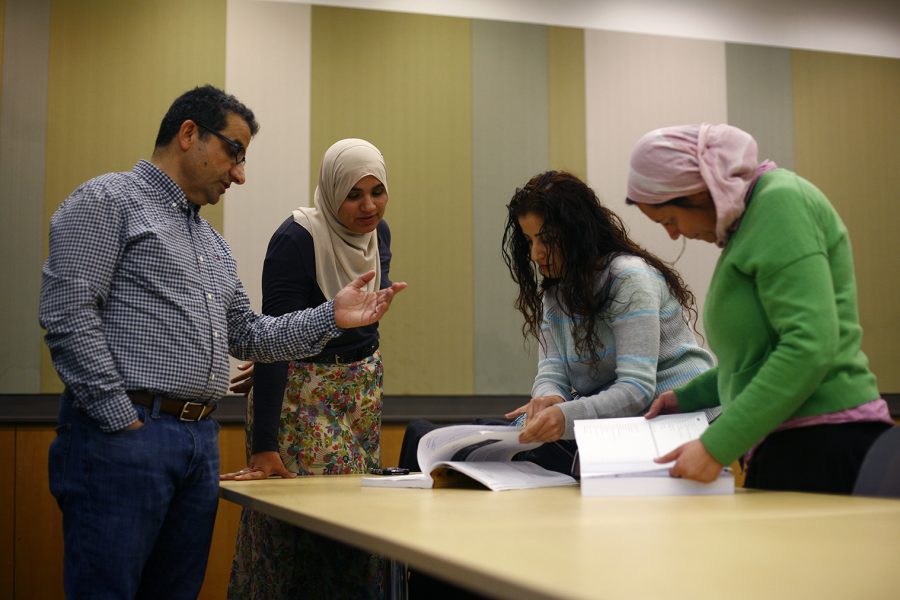The number of foreign language professionals in America is shrinking, but the College of Liberal Arts’ Texas Language Center is attempting to mitigate this problem by supporting, promoting and enhancing the teaching of foreign languages.
At “Towards A New Model for Writing Arabic Teaching Materials in the 21st Century,” hosted by the Department of Middle Eastern Studies, Arabic expert Dr. Ghazi Abuhakema discussed how languages should be taught using Arabic as a paradigm, but the techniques presented could be adapted to teach any language.
Abuhakema, UT alumnus and director of the Asian Studies and Arabic programs at the College of Charleston, said he wants people to be aware of the nuances of teaching Arabic.
“The purpose of this lecture is to expose students and faculty to new products and intricacies in the field,” Abuhakema said at the lecture in the Liberal Arts Building. “The richness within Arabic will only be understood through proficiency and appreciation of the language.”
Abuhakema started off the lecture by discussing the art of communication, informing the audience that language is also about understanding culture and social interactions.
Maryam Ahmed, government and history senior, attended the lecture and said she was excited to learn about Arabic.
“Learning about Arabic from a teaching perspective is really useful because it’s a language I’m attempting to master and I’d be able to take it forward,” Ahmed said.
Abuhakema analyzed the negative stigma surrounding Arabic following 9/11. He said schools teach fewer Arabic classes compared to Spanish, German or other languages.
“You always see several (textbooks) regarding the languages of Spanish, Chinese and French,” Abuhakema said. “However, there are not many books about learning the Arabic language.”
“Kalima wa Nagham: A Textbook for Teaching Arabic,” which was published by UT and co-written by Abuhakema, was presented as being an efficient way of teaching a language. Unlike many other language textbooks, “Kalima wa Nagham” focuses on practice regarding pronunciation, expressions and culture. The third volume of the textbook is expected to be released soon.
Abuhakema emphasized that learning a language is not just about opening oneself to more opportunities, but appreciating its beauty as well.
George Ishac, biology and sociology junior, said he enjoyed learning about Arabic.
“This lecture really opened my eyes to the teachings of Arabic and I’m really glad I got to attend,” Ishac said.





















